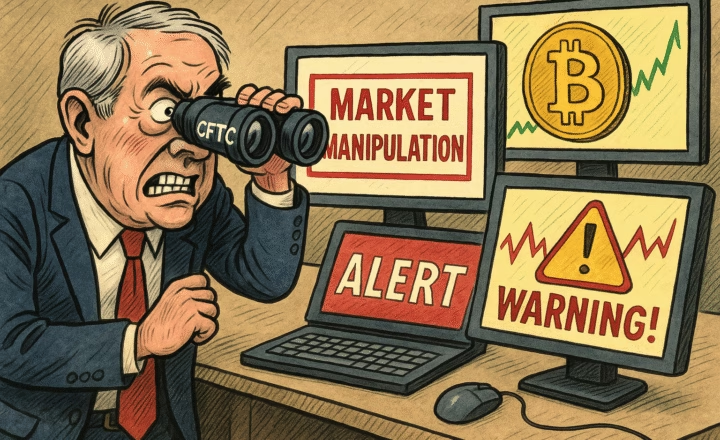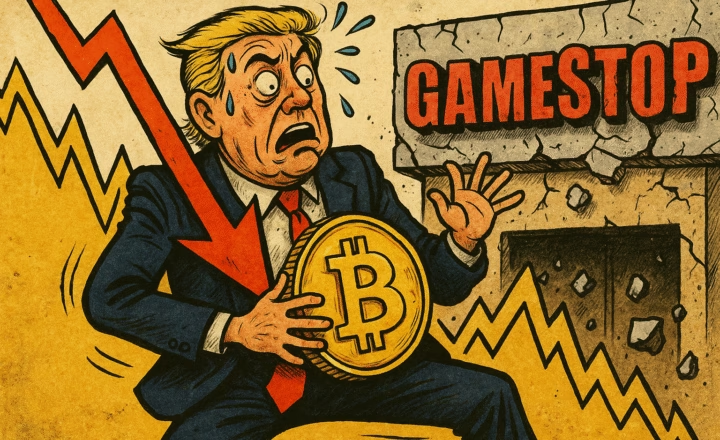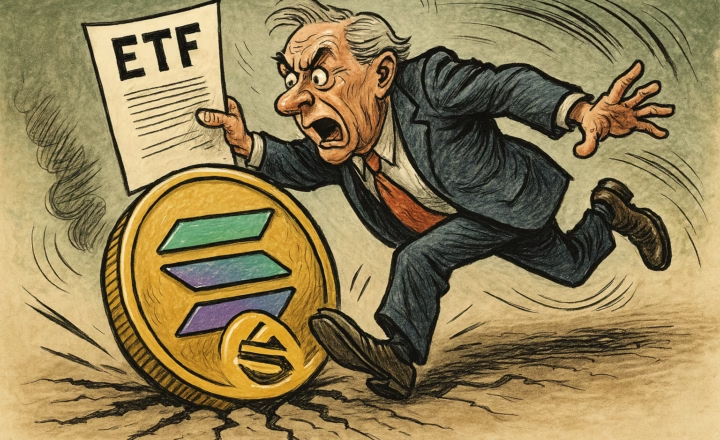PM Fiala’s Coalition Endures Fourth Ouster Attempt Tied to Crypto Donation from Convicted Criminal
The government of Czech Prime Minister Petr Fiala narrowly survived its fourth no-confidence vote in three years on Monday, following revelations that the country’s Ministry of Justice accepted a $45 million Bitcoin donation from a convicted drug trafficker.
The vote, triggered by a coalition of opposition parties, fell short by seven votes, with 94 lawmakers supporting the motion — below the 101-vote threshold needed to unseat the Civic Democratic Party-led coalition.
The scandal has sparked political outrage and renewed scrutiny of crypto’s growing intersection with government institutions, echoing global concerns over the influence of digital assets in politics.
The Scandal: A Convict, a Crypto Wallet, and 1,561 BTC
At the heart of the controversy is a Bitcoin (BTC) donation worth nearly 1 billion Czech koruna ($45 million), made on May 27 by Tomáš Jiřikovský, a former darknet operator convicted of drug trafficking, weapons violations, and embezzlement.
Jiřikovský offered the donation — approximately 1,561 BTC — to the Ministry of Justice, claiming it represented a gesture of repentance. The funds were reportedly obtained after a Czech court returned control of previously seized crypto wallets to him.
However, Jiřikovský is also believed to control another 3,855 BTC linked to Nucleus Market, a dark web marketplace shut down in connection with his arrest. That larger stash remains inaccessible due to technical limitations, according to cybersecurity expert Jiří Berger, who witnessed the wallet’s reopening.
Political Fallout: A Government Under Pressure
The no-confidence vote was brought forward by opposition parties ANO, SPD, and the Pirate Party, arguing the government had compromised public trust by accepting funds tied to criminal activity.
Following over 24 hours of heated debate in Parliament, the ruling coalition managed to hold its ground. Still, Prime Minister Petr Fiala admitted that the donation “could have been avoided” and acknowledged the controversy had damaged public confidence in his party.
“We will take responsibility for ethical misconduct,” Fiala said in a translated statement.
He also accused opponents of exploiting the scandal to “throw dirt, insults, and lies” at his government.
The incident marks the fourth attempt to oust Fiala’s administration since 2022, with prior challenges tied to energy policy, inflation, and allegations of spying.
Ministerial Shakeup: Blažek Out, Decroix In
The political repercussions were swift. Justice Minister Pavel Blažek resigned on May 30, citing his role in approving the controversial donation. Critics have also demanded the resignation of Finance Minister Zbyněk Stanjura, who allegedly knew of the donation in advance.
In response, Czech President Petr Pavel appointed Eva Decroix as the new Minister of Justice on June 10. Decroix has pledged to launch an independent investigation into the Ministry of Justice’s handling of the case.
“The Ministry will provide full cooperation in the investigation of the donation case,” Decroix said.
A Global Pattern of Crypto-Political Tensions
The Czech Bitcoin scandal adds to a growing list of controversies involving crypto and national leadership:
-
In the United States, President Donald Trump has been criticized for profiting from a series of crypto ventures, including NFTs and a Trump-backed stablecoin.
-
In Argentina, President Javier Milei faced backlash for his ties to the now-defunct Libra token.
These developments underscore how digital assets are increasingly becoming political flashpoints, with governments struggling to manage ethical and regulatory concerns in the face of rapid crypto adoption.
The Donation: Legal, But Questionable?
Although the Bitcoin donation was legally accepted, it has raised significant ethical and procedural concerns. The Ministry reportedly conducted minimal due diligence regarding the origin of the funds.
Jiřikovský’s offer accounted for roughly one-third of his accessible crypto holdings, according to legal records. His full criminal background was well known at the time of the donation.
Observers have questioned why the Ministry did not refuse or redirect the funds, especially given their potential link to illicit financial activity.
Conclusion
While the Czech government has survived yet another no-confidence vote, the Bitcoin donation scandal has cast a shadow over the Civic Democratic Party’s credibility and raised broader questions about crypto governance in the public sector.
With a new Justice Minister vowing to investigate and pressure mounting on other cabinet members, the government’s next moves will likely determine whether it can regain public trust — or face further political instability.
As digital assets become more intertwined with public institutions, the Czech case may serve as a cautionary tale for other nations navigating the intersection of crypto, crime, and statecraft.












